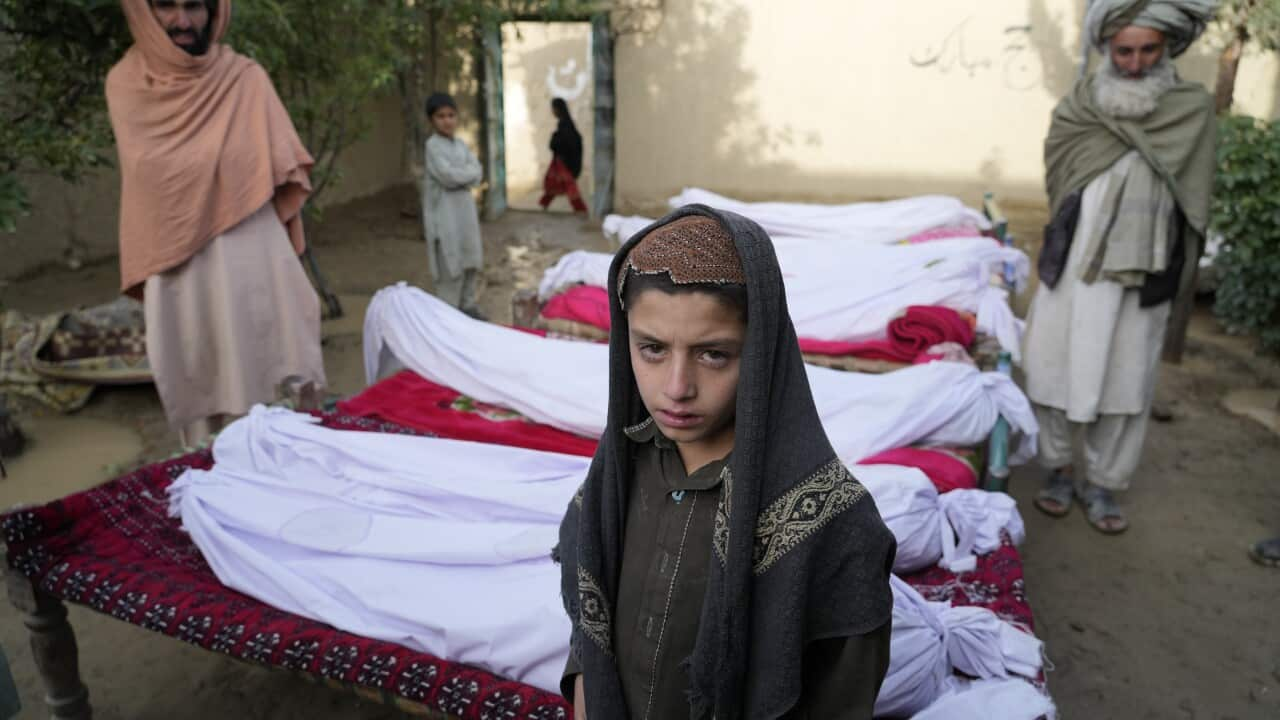Afghanistan lacks the medical supplies to treat those injured in an earthquake that killed more than 1000 people this week, a senior official says, as an aftershock killed five more.
Authorities earlier ended a search in remote southeastern mountains for survivors of the 6.1 magnitude earthquake that struck early on Wednesday near the Pakistani border, about 160km southeast of the capital Kabul.
Friday's aftershock, in almost exactly the same place, was of magnitude 4.3, the US Geological Survey said.
A health ministry official said it killed five people but there was no immediate word on the extent of new damage and injuries.
A total of 1,036 people are confirmed to have been killed, the United Nations said on Friday.
About 2,000 people were injured and 10,000 homes partially or entirely destroyed in Wednesday's earthquake, Mohammad Nassim Haqqani, a spokesman for Afghanistan's disaster ministry, told Reuters.
"The health ministry does not have enough drugs," he said. "We need medical aid and other necessities because it's a big disaster."
The epicentre of the earthquake was in a region of arid mountains dotted with small settlements that were often the scene of clashes during Afghanistan's decades of war.
Poor communications and only very basic roads have hampered relief efforts in a country grappling with a humanitarian crisis that deteriorated sharply after the Taliban took over last August as US-led international forces withdrew.
The disaster is a major test for the hard-line Islamist rulers, who have been largely isolated, shunned by many because of concerns over human rights and cut off from much direct international assistance because of sanctions.
On Thursday, Japan, South Korea, Taiwan and the United Arab Emirates all said they planned to send aid. Supplies from Pakistan have already crossed the border. India, which has strained ties with the Taliban, said it had sent 27 tonnes of supplies on two flights to be handed to international aid agencies.
Survivors without food and shelter as aid trickles in
As aid trickled to devastated villages in remote parts of Afghanistan on Friday, thousands of people remained with little food, shelter and water.
Entire villages have been levelled in some of the worst affected districts, where survivors said they were even struggling to find equipment to bury their dead.
"The tents, food and flour we have received for a few days are not enough," said Raqim Jan, 23, near the ruins of his home in Gayan district.
"Currently, it's summer, it's too hot. In two months it will be winter, and we will face severe cold. If they could repair the roofs and houses, that would be the most helpful."
The area was still being roiled by aftershocks that were sending frightened locals scurrying from whatever shelter they had sought in badly damaged dwellings.
The United Nations refugee agency, UNHCR, has rushed tonnes of supplies and expert staff to support the relief effort, it said.
Another UN body, the World Health Organisation, has also warned that the disaster could add to the risk of cholera developing across Afghanistan.
About 500,000 people were already experiencing diarrhoeal disease in May, one of the main symptoms of cholera, said Dr Dapeng Luo, its representative in Afghanistan.



